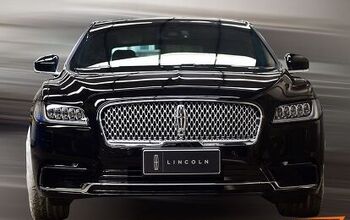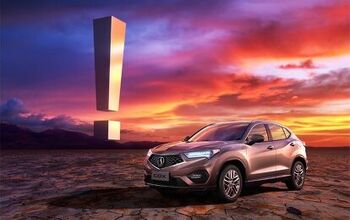China Plans to Open Car Market By 2022

After weeks of unpleasant trade talk and posturing between Washington and Beijing, China’s lead economic planner announced the country would be easing limits on foreign ownership of automotive ventures. While an official metric was not posted, it will be less than the current 50-percent cap non-Chinese automakers have been limited to since 1994. But, for all we know, China may be seeking to scrap the mandate entirely.
We did, however, get a timeline. On Tuesday, the People’s Republic announced it would remove foreign ownership caps for companies making fully electric and plug-in hybrid vehicles this year — followed by commercial vehicle manufacturers in 2020 and the rest of the car market by 2022.
Nobody seems to be able to figure out why China decided to extend an olive branch. Presumably, it’s to alleviate the growing trade tension with the United States. But European automakers have just as much to gain, if not more, from the move. BMW sends more vehicles from the U.S. to China than anyone and Volkswagen sells the most cars inside the country through its joint-venture partnerships with FAW Group.
Ford and General Motors still move their fair share of metal, though — and a lot of it is built in China. Perhaps the nation’s government simply felt enough foreign automakers had made sufficient investments within the country already, and didn’t want to risk a full-blown trade war with the U.S. just to get a few more jointly owned factories. It’s not like anybody is going to abandoning the market anyway; the country is far too big for businesses to ignore.
We’re hoping China has more to say on the matter soon.
[Image: Ford Motor Co.]

A staunch consumer advocate tracking industry trends and regulation. Before joining TTAC, Matt spent a decade working for marketing and research firms based in NYC. Clients included several of the world’s largest automakers, global tire brands, and aftermarket part suppliers. Dissatisfied with the corporate world and resentful of having to wear suits everyday, he pivoted to writing about cars. Since then, that man has become an ardent supporter of the right-to-repair movement, been interviewed on the auto industry by national radio broadcasts, driven more rental cars than anyone ever should, participated in amateur rallying events, and received the requisite minimum training as sanctioned by the SCCA. Handy with a wrench, Matt grew up surrounded by Detroit auto workers and managed to get a pizza delivery job before he was legally eligible. He later found himself driving box trucks through Manhattan, guaranteeing future sympathy for actual truckers. He continues to conduct research pertaining to the automotive sector as an independent contractor and has since moved back to his native Michigan, closer to where the cars are born. A contrarian, Matt claims to prefer understeer — stating that front and all-wheel drive vehicles cater best to his driving style.
More by Matt Posky


































Comments
Join the conversation
In addition to the 50% foreign ownership cap isn't there also a limit to the number of joint ventures any given automaker can form in China? I think it's only 2 per manufacturer. China must have realized that global manufacturer consolidation was pointing toward full market saturation in automotive joint ventures and figured it was a concession that could be made in negotiations that would appear significant but yield little.
Is any part of that photo real?
That Focus looks oddly photoshopped in place. Why isn't it casting any shadow?
China is making a gamble that Trump will be a one-term president. Come 2022, the plan to open the car market will be silently dropped.